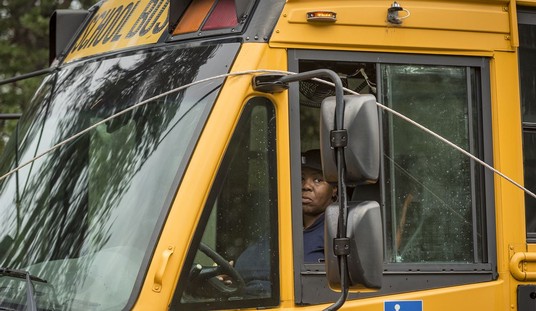President Obama told NPR this morning that the takeaway from yesterday’s foreign policy speech at West Point is that Syria’s Bashar al-Assad and Russia’s Vladimir Putin should be “on guard” for U.S. action — to a point.
“We are going to be most effective when we use a wide range of tools, diplomacy, sanctions, appeals to international law. In some cases, a judicious use of military force may make sense. But in those circumstances, it has to be in a multilateral system where other countries are participating,” he said when pressed about whether he now advocates isolationism or interventionism.
Assad and Putin “can take away from it that they have to be on guard when they act outside of international norms that we are going to push aggressively against them.”
“We’re not always going to push, using military actions initially. There may be circumstances in which we mobilize the international community to take international action,” he quickly clarified. “…Mr. Putin has just announced that he is moving his troops back from the borders of Ukraine. And that’s an application of American leadership that is sustainable, consistent, and is most likely to produce the kinds of results we want.”
In fact, Obama added, it’s “a mistake to think that somehow Mr. Putin reflected strength in this situation.”
But when asked if he has the ability and leverage to make Russia give Crimea back to Ukraine, the president responded, “Well, you know, I think we’re going to have to see how it plays itself out.”
He also said he wants the communist regime in Beijing to be successful.
“We do not have an interest in stopping China from becoming successful. China is the most populous country on Earth,” Obama said. “And we welcome China’s peaceful rise. In many ways, it would be a bigger national security problem for us if China started falling apart at the seams. So we want the Chinese people to steadily have a higher standard of living. We want China to have increased capacity to participate in international efforts around issues like climate change. We have a very specific concern when China is not following basic international norms, basic rules of the road, where it does not feel bound by the kind of international practices that have helped to underwrite China’s rise.”
“…You know, those are a lot of markets out there. We sell a lot of goods out there. And you know, we don’t want to see these conflagrations that can end up impeding, you know, our own interests.”
Obama compared his foreign policy to baseball.
“A lot of what you want to do is to advance the ball on human rights, advance the ball on national security, advance the ball on energy independence, to put the ball in play. And every once in a while, a pitch is going to come right over home plate that you can knock out for a home run,” he said. “But you don’t swing at every pitch.”









Join the conversation as a VIP Member